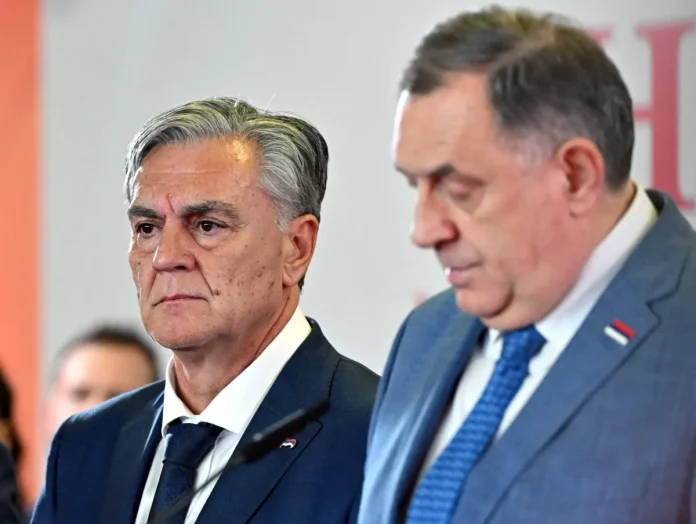Bosnian Serbs elect new president after Milorad Dodik’s removal, with vote testing support for his nationalist party amid ongoing political crisis
BANJA LUKA: Bosnian Serbs voted on Sunday to replace banned firebrand leader Milorad Dodik, who was removed from office for defying the country’s international peace envoy.
Dodik was ejected in August after being convicted for ignoring rulings by the international appointee overseeing Bosnia’s peace deal that has held the country together since the 1990s ethnic war.
The conflict left Bosnia divided into two semi-autonomous entities: the Serb-run Republika Srpska and a Bosniak-Croat federation connected by weak central institutions.
“These elections were organised by Bosnian Muslims and (top envoy Christian) Schmidt,” Dodik said after voting in his hometown Laktasi.
“They wanted to defeat us in Republika Srpska, and now the people have a chance to defeat them,” he told reporters, emphasizing that Republika Srpska is “above all.”
Sunday’s early election means the winner will serve for less than a year before the general election in October 2026.
The vote represents a crucial test of support for Dodik’s nationalist party, which has held power for nearly two decades.
Retired economist Brankica Dragojlovic expressed hope for better times, saying her pension of 350 convertible marks (US$206) barely covers living expenses.
“What we’ve had until now has been terrible… If it weren’t for my son, I would have starved to death,” she told AFP.
“He (Dodik) stole everything, he should be helping the poor, not taking for himself. He has enough.”
Approximately 1.2 million eligible voters could choose between six candidates, with two main favourites emerging.
Sinisa Karan, a 63-year-old former interior minister, represents Dodik’s close ally and personal choice, with Dodik remaining head of their Union of Independent Social Democrats party.
The main opposition Serb Democratic Party selected Branko Blanusa, a 56-year-old electrical engineering professor who has repeatedly accused Dodik and his party of corruption.
The election follows years of clashes between Schmidt and Dodik that many analysts said pushed Bosnia toward its worst political crisis since the 1992-1995 war.
Earlier this year, Dodik received a six-year ban from public office for flouting Schmidt’s decisions.
After months of defiance, the 66-year-old leader suddenly accepted his removal in October.
Within days, the United States dropped sanctions against Dodik and several associates that had been in place since 2017.
Karan, who had been under sanctions since January, was among those removed from the sanctions list.
During the campaign, Karan was openly promoted as continuing Dodik’s legacy.
At a final rally on Thursday, Dodik promised the push for Republika Srpska statehood would continue despite his removal.
“Our vision is freedom, and there is no freedom without a state,” Dodik told supporters in Banja Luka.
Pensioner Milan Golja said he voted for Karan to continue Dodik’s policies.
“This is a big Western-made farce… Dodik has the support of the people,” he told AFP in Laktasi.
Blanusa has blamed Dodik’s policies for threatening the entity’s future and accused him of corruption.
“He has humiliated RS institutions for his own interests and wealth,” Blanusa said during a campaign event earlier this week.
Historian and diplomat Slobodan Soja saw no clear “ideological” difference between the two leading contenders, calling both “unpopular, selfish, and irresponsible.”
Meanwhile, Dodik’s “power remains intact and will only grow over time, as he is simply all-powerful as long as he leads the party,” Soja said.
Voter Dragoslav Milanovic, 66, expressed hope the election would calm the political crisis.
“The chaos here is not helping anyone,” he told AFP.
First preliminary results were expected late Sunday. – AFP







